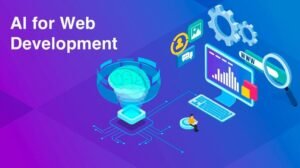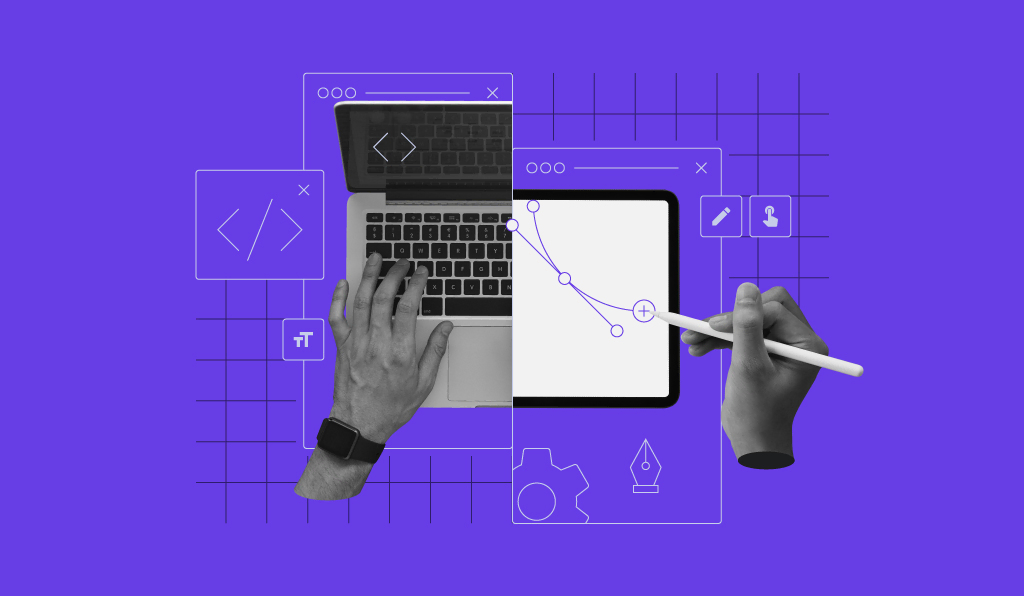How Web Development is Evolving with Artificial Intelligence
Web development is undergoing a significant transformation, largely driven by the rise of artificial intelligence (AI). From automated design tools to personalized user experiences, AI is shaping how websites are built, managed, and optimized. As businesses and developers look for innovative ways to improve website functionality, performance, and user interaction, AI is playing a pivotal role in the evolution of web development.
In this article, we’ll explore how AI is revolutionizing web development and why it’s becoming a key factor in shaping the future of websites.
1. AI-Powered Web Design
Traditionally, web design was a labor-intensive process requiring developers and designers to manually code and fine-tune every aspect of the website. However, AI has made it easier and faster for websites to achieve an appealing and functional design.
Today, AI-driven web design tools like Wix ADI (Artificial Design Intelligence) and Squarespace offer automated design suggestions based on user preferences and industry standards. These platforms analyze user input and content to generate design layouts, color schemes, fonts, and more, allowing designers to focus on the creative aspects while the AI handles the technical details.
AI-powered design tools can also help with responsive design—automatically adjusting websites to be mobile-friendly and optimized for various screen sizes without requiring manual input. This reduces the time and effort needed to ensure a website works seamlessly on all devices, improving both the development process and user experience.
2. Personalized User Experience
One of the most impactful ways AI is transforming web development is through personalization. AI uses data analytics and machine learning algorithms to personalize user experiences based on behavior, preferences, and past interactions. This allows websites to deliver more relevant content, product recommendations, and services.
For example, e-commerce websites can recommend products to users based on their previous purchases or browsing history. Similarly, news websites use AI to suggest articles or topics aligned with a user’s interests, keeping them engaged longer. This personalization leads to increased user engagement and higher conversion rates, as users are more likely to interact with content tailored to their preferences.
Furthermore, AI-powered dynamic content adapts in real-time, ensuring that each visitor receives a unique experience, improving the overall user journey. By analyzing past interactions, AI algorithms can predict what users are likely to need or want, making the browsing experience more seamless and enjoyable.
3. AI-Driven Automation in Web Development
Web development often involves repetitive tasks such as coding, debugging, and testing. AI-driven automation tools are streamlining these processes, allowing developers to focus on higher-level tasks.
AI-based tools like Test.ai are used to automatically identify bugs and errors in a website’s code. These tools can run tests more quickly and accurately than manual testing, ensuring a more efficient development cycle. AI also automates content management tasks, such as tagging and organizing content, and even generates content suggestions based on SEO analysis.

Additionally, AI tools can assist with website optimization by automatically adjusting elements like images, scripts, and page structure for improved load times and performance. For instance, AI can identify slow-loading elements and recommend or implement changes to enhance speed and overall performance.
4. AI-Powered Chatbots and Virtual Assistants
Another exciting development in web technology is the widespread use of AI-powered chatbots and virtual assistants. These tools are reshaping how websites interact with visitors by providing real-time support and engagement.
Websites equipped with AI-driven chatbots can assist visitors by answering frequently asked questions, guiding them through complex processes, or providing personalized product recommendations. Unlike traditional customer support systems, AI chatbots can work 24/7, handling multiple inquiries at once and offering instant responses.
AI chatbots also learn from previous interactions, becoming more accurate and efficient over time. This ability to learn and adapt to user needs makes chatbots an invaluable tool for improving customer service, increasing user satisfaction, and reducing the burden on human support teams.
5. Improved SEO and Content Strategy
Search engine optimization (SEO) is crucial for any website’s success, and AI is making it easier for developers and content creators to optimize their sites for better visibility. AI-driven tools can analyze large amounts of data, identify trending keywords, and suggest content that is more likely to rank well on search engines.
For instance, AI can predict which keywords will perform best, suggest on-page optimizations (such as meta tags or alt text), and even generate SEO-friendly content automatically. Tools like Surfer SEO use AI to analyze a website’s existing content and recommend changes based on current SEO trends, improving a website’s ranking in search results.
Additionally, AI can assist with content creation by automatically generating headlines, blog posts, and product descriptions based on SEO guidelines. This speeds up content creation, allowing businesses to focus on creating more engaging and valuable material for their audience.
6. Voice Search and AI Integration
With the rise of voice-activated devices like Amazon Alexa, Google Assistant, and Siri, voice search is becoming a more common way for users to interact with websites. AI plays a key role in enabling websites to integrate voice search capabilities.
AI-driven voice recognition technology helps websites optimize for voice queries by understanding natural language and context. As a result, businesses can provide more user-friendly search functionalities, allowing visitors to ask questions and receive instant answers. Websites optimized for voice search also tend to perform better in search engine rankings, as voice search queries often differ from traditional typed searches.
This shift toward voice interaction is transforming the way web developers think about content and search engine optimization. Websites now need to consider how their content sounds and how to make it conversational, rather than just how it reads on a screen.
7. AI in Web Security
AI is also playing a significant role in enhancing website security. Traditionally, web security relied on static rules to detect threats, but AI is changing the landscape by using machine learning to analyze patterns and identify potential risks.
AI-based security tools can automatically detect unusual traffic, prevent DDoS attacks, and even identify malicious users trying to access sensitive data. Machine learning algorithms continuously learn from new data and adapt to evolving security threats, making AI-powered security tools more effective than traditional methods.
Moreover, AI can help prevent fraudulent activities, such as identity theft or unauthorized transactions, by analyzing user behavior patterns and flagging suspicious activities in real-time.
8. The Future of AI in Web Development
As AI technology continues to advance, its role in web development will only grow. We can expect more AI-powered tools to emerge, further simplifying the development process and enabling developers to create smarter, more personalized, and more efficient websites.
The integration of AI in web design, content management, and user experience will continue to enhance websites’ ability to adapt to individual users’ needs, offering more engaging and meaningful interactions. As AI becomes more accessible and refined, web development will become faster, more automated, and more aligned with user expectations.
Conclusion
Artificial intelligence is transforming the field of web development in profound ways, making websites smarter, more efficient, and more user-friendly. From AI-powered design tools to personalized user experiences and automated security measures, AI is revolutionizing how websites are built and interacted with. As businesses and developers continue to harness the power of AI, we can expect the web to become an even more dynamic and personalized space in the years to come. The future of web development is undoubtedly powered by AI, and its influence will only continue to grow.



